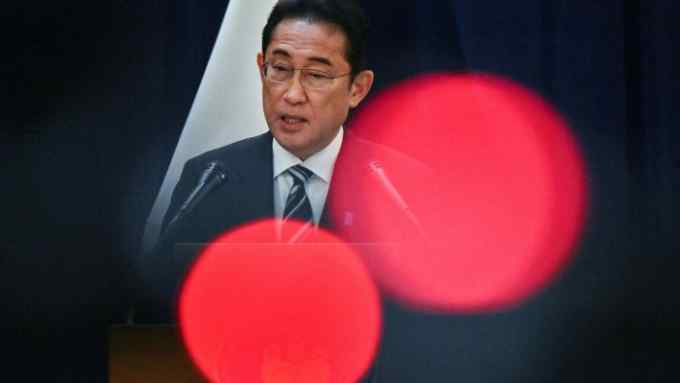Overseas real estate buyers identify Japan as an opportunity

Simply sign up to the Property sector myFT Digest -- delivered directly to your inbox.
Tokyo for business and shopping. Osaka for the food. Karuizawa for the alpine forests. Kyoto for the history. And Niseko for the best powder ski slopes in the world. For many years, this was more or less how Japan was mapped-out in the minds of visitors from outside — a place to enjoy, but also to leave.
In 2023, that has completely changed. For many visitors — in particular those from Singapore, Hong Kong, and mainland China — Japan is now, emphatically, a place to buy.
The weak yen and the still rock-bottom cost of borrowing, say buyers, are a helpful tailwind. But the fundamental demand is far more powerful. Tokyo for the swish apartment. Osaka for proximity to its future casino. Karuizawa for a mountain lair in the style of a James Bond villain. Kyoto for the renovated wooden mansion. Niseko for the prestige ski lodge.
Real estate brokers report five- to ten-fold increases in inquiries from individual foreign buyers between January and September. They say the transformation has been extraordinary.
It is matched by an even greater shift of focus by institutional investors, sovereign wealth funds, private equity firms and corporations — all of which are eager to make their mark in one of the hottest and most liquid real estate markets in the world.
For the heavyweight buyers, now pouring billions into a once moribund market, Japan’s appeal is more fundamental than seeking a permanent foothold in a desirable tourist destination.
For investors looking at commercial, residential and industrial properties, Japan represents predictability in an unpredictable world.
Despite the rapid move to remote work during the pandemic, Japanese white-collar workers have largely returned to their offices. But companies are selling land banks and other real estate assets under increasingly irresistible pressure from shareholders. China, meanwhile — in both economic and geopolitical narratives — is rapidly losing its attraction as an investment destination, after years as a centre of gravity.
Critically, say the investors themselves, Japan has moved into what appears an extended phase of political stability. Until 2012 and the arrival of the late Shinzo Abe as prime minister, postwar Japanese leaders came and went at an average rate of roughly one every 18 months. Abe and Japan’s current prime minister, Fumio Kishida, have held the job for a combined 10 years.
“Japan has political stability together with a stable financing environment, and that makes it very attractive,” says Daisuke Kitta, head of real estate in Japan at international asset managers Blackstone. “On top of that, people are starting to think that there’s growth, too, which makes it a pretty good story.”
The official figures are starting to back up the hype from perennially optimistic brokers and real estate agents. Overall, in Japan, international investment in real estate hit ¥513bn in the first half of 2023, up from ¥362.1bn in the same period last year, according to a report by Jones Lang LaSalle.
Tokyo also ascended towards the top of the world’s most investable cities, only losing out on the top spot to Los Angeles in the first half of the year, according to the same report.
The Japanese capital jumped 14 places with a total of $9.3bn ploughed into its real estate, ahead of New York, Paris, Dallas, and London. Osaka, to the west of Tokyo, came in 29th place with $1.9bn.
Christine Li, an analyst at real estate agents Knight Frank, noted in a recent report that, in the decade from 2013, an estimated $16bn had been injected into Japan’s commercial real estate market from overseas. But, significantly, some 12 per cent of that inflow happened in the first six months of 2023.
The depreciation of the yen, which hit an all-time low against the Singapore dollar in 2023, has made Singaporeans the most active cross-border investors in Japanese real estate so far this year.
But, crucially, the tactics have also changed, as funds hunt for bargains in growth-sectors like logistics and in hotels, inns and restaurants, hit hard by the Covid-19 pandemic but rebounding along with international tourism.
“Over the past decade, most capital inflows from Singapore were directed towards Japan’s office sector,” followed by investments in, for example, industrial assets, Li reported.
She added that “the spotlight has shifted towards growth-inducing asset classes such as logistics and hospitality, poised to capitalise on the upward trajectory”.
In addition, the sought-after liquidity in the Japanese market is creating opportunities at the very largest end of the market.
In the heart of Tokyo, Singaporean sovereign wealth fund GIC is considering the sale of its 46-storey Shiodome City Center skyscraper, according to people familiar with the matter.
The fund is targeting a price tag close to a $2bn — which would make it one of the most expensive real estate deals in Japan’s history — and is courting Japanese investors, as well as international institutions, say the same sources.
Now is the time to invest in Japan, says Eiki Shibao, founder of Tokyo-based NorthEast Capital Management. “You just can’t be stupid and forget that Japan can still be a complicated place to do business.”

Comments